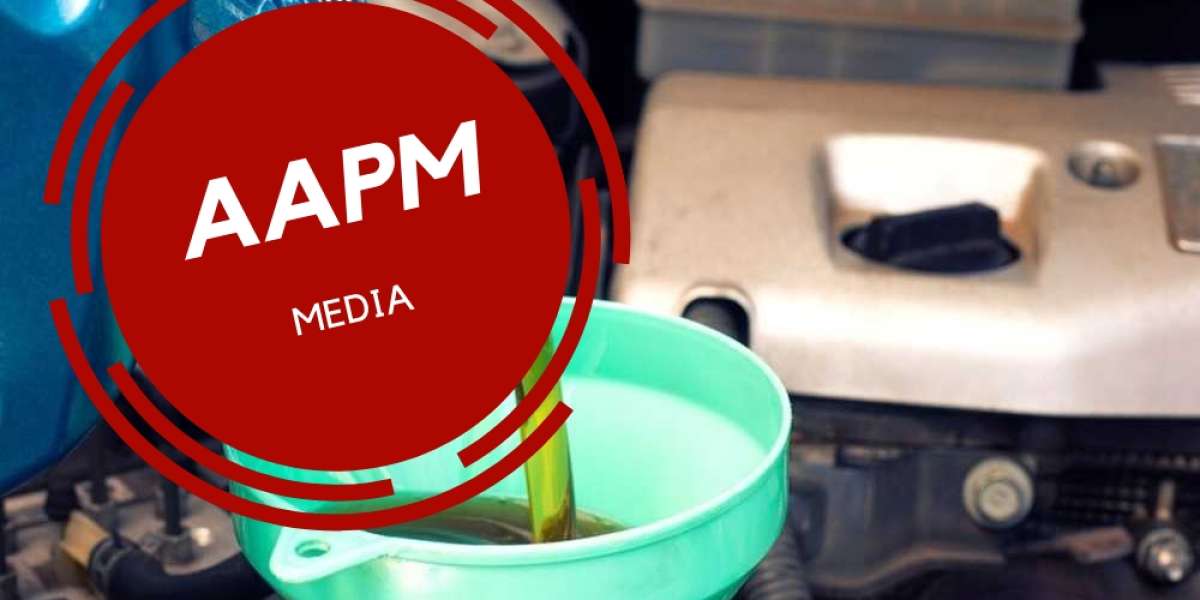Diesel Exhaust Fluid (DEF) assumes a significant role in the current era of environmental consciousness and stringent emission control regulations. DEF is a game changer in terms of operations that are cleaner and more sustainable. It's excellent news for the global industry and the transportation sector since it enables diesel engines to meet pollution limits without compromising performance or efficiency. This blog explores DEF in great detail, informing about its significance, workings, and benefits for diesel fleets. It illustrates the critical role DEF plays in promoting fleet sustainability.
Understanding Diesel Exhaust Fluid (DEF)
DEF is a meticulously blended blend of 32.5% urea and 67.5% deionized water. One of the many industrial applications for synthetic urea, a substance that occurs naturally in both people and animals, is the production of DEF fluid. Environmental conservation efforts depend heavily on reducing emissions from diesel engines, and this environmentally friendly, non-flammable fluid is critical to that goal.
The Science Behind DEF Fluid
The main purpose of diesel exhaust fluid is to reduce the quantity of nitrogen oxides (NOx) that diesel engines emit into the atmosphere. The atmospheric release of nitrogen oxides (NOx) is a major contributor to smog, acid rain, and climate change. Nitrogen and water vapor, two environmentally benign byproducts of the reaction with the heated gases, are produced when DEF fluid is added to the exhaust streams of diesel automobiles. DEF's catalytic conversion mechanisms facilitate a process known as Selective Catalytic Reduction (SCR).
Why DEF fluid is Indispensable?
Compliance with Emissions Standards:
Diesel engines can now comply with the strict pollution standards set by the US EPA and other international regulatory bodies thanks in large part to the invention of DEF.
Mandatory Use in New Vehicles:
An EPA rule mandated that starting in 2010, all newly built heavy-duty diesel cars in the US had to utilize DEF to reduce pollution. In order to underscore the significance of DEF fluid in the automobile industry, this mandate was extended to include medium-duty diesel vehicles in 2014.
Global Environmental Efforts:
Several countries have established legislation mandating diesel engines to use diesel exhaust fluid (DEF) in an attempt to minimize nitrogen oxide (NOx) emissions in response to global requests for cleaner air.
Essential Aspect of Diesel Fleet Management:
Because DEF fluid is so crucial to achieving emission requirements, it has become an essential component of diesel fleet management. Because of regulatory constraints, using DEF is now necessary to operate diesel fleets in a way that is both ecologically friendly and complies with the law.
Environmental Responsibility:
By aligning diesel engine operations with these more general goals, the usage of DEF shows a commitment to environmental stewardship. Reducing air pollution and protecting air quality are wider objectives. It speaks to the auto industry's efforts to meet the urgent demand for more environmentally friendly modes of transportation.
Future-proofing Fleets:
Fleets are future-proofed—that is, they can consistently fulfill present and future environmental standards—by making the use of DEF fluid mandatory. DEF's long-term significance in diesel engine technology is demonstrated by the ease with which fleets may adapt to new regulations, even in light of the expected tightening of regulations.
Benefits of DEF to Diesel Engines
- Enhanced Engine Performance: Because DEF promotes full combustion, it plays a crucial role in increasing the efficiency of diesel engines. By drastically reducing the generation of nitrogen oxides (NOx), this technique enhances engine performance and efficiency.
- Potential Fuel Economy Improvement: Fuel efficiency could be greatly increased due to DEF's improved combustion efficiency. DEF fluid helps engines use gasoline more efficiently by lowering the likelihood of incomplete combustion, which could result in lower fuel consumption rates.
- Enhancement of Power Output: Modification of the combustion process with DEF assistance may increase power output. Engine performance and operating capacities are improved by a more economical use of fuel energy.
- Keeping the Engine Exhaust System Clean: DEF fluid is Necessary to Avoid Deposit Buildup and Soot. It prevents deposits like soot from building up in the system, which over time can reduce an engine's efficiency and performance.
- Lower Maintenance Expenses: DEF's capacity to maintain a clean exhaust system and limit wear on engine components considerably decreases the frequency of maintenance. As a result, engine parts last longer, and operating costs are decreased.
- Compliance with Environmental Regulations: By incorporating DEF fluid into their operations, fleets can achieve more ecologically friendly and sustainable practices while also conforming to stringent environmental criteria. The observable advantages of this compliance include lower emissions, better fuel efficiency, and longer engine life.
- Overall Operational Benefits: Beyond merely fulfilling legal obligations, using DEF provides extensive operational benefits. It lowers emissions, boosts fuel economy, lowers maintenance costs, and improves engine performance. Fleets that use DEF have an advantage over their rivals in this regard, both in terms of environmental responsibility and operational efficiency.
The Practicalities of DEF Use
- Consumption Rates: Typically, diesel fuel consumption is between 2% and 3% of diesel exhaust fluid (DEF). Engine performance is influenced by several factors, therefore this rate is not constant and is subject to vary.
- Factors Affecting Consumption: The engine load, driving conditions, and ambient temperature are some variables that impact the DEF consumption rate. Heavy engine loads, more demanding driving conditions, and bad weather can all increase the need for DEF fluid.
- Replacement Interval: It is advised to replace DEF every 20,000 to 30,000 kilometers after filling it up. This period is simply a rough guideline; the exact vehicle and its operational factors will decide how much variance there is.
- Reliance on the Vehicle: The exact time between DEF fluid refills varies significantly from car to car. Manufacturers often provide recommendations based on the vehicle's model and type of engine to ensure optimal performance.
- Critical for Engine Performance: If the DEF level is not maintained sufficiently, diesel engines will not function correctly. To reduce emissions and increase engine efficiency, the Selective Catalytic Reduction (SCR) process requires DEF.
- Adverse Repercussions of Depletion: If the DEF tank is empty, engine performance could be seriously compromised. Many contemporary diesel engines have their performance capabilities restricted, or placed in a "limp mode," to prevent damage and to encourage the timely refueling of DEF fluid.
- Operational Capabilities Restricted: The engine's performance will be significantly reduced if diesel exhaust fluid (DEF) is not used. Decreasing power output and efficiency may have an effect on the vehicle's overall performance and productivity.
- Importance of Regular Monitoring: Fleet managers and drivers need to monitor DEF levels to ensure that they remain within the advised ranges. This method makes it easier to avoid rapid depletion and the performance disadvantages that accompany it.
- Techniques for Refilling Strategically: By strategically replenishing your engine with DEF, you can prevent running out and maintain engine performance. Some strategies to consider are keeping an extra supply on hand and scheduling maintenance checks at predetermined intervals.
- Effect on Sustainability Over the Long Run: Fleets that maintain proper DEF fluid levels and replace their vehicles at regular intervals contribute to the attainment of environmental sustainability goals and compliance with emissions regulations. This lowers the emissions of NOx.
Embracing DEF: A Step Towards Sustainability
It is not only necessary to comply with regulations to use diesel engines with diesel exhaust braking systems; it is a true commitment to environmental preservation. By drastically reducing harmful emissions, diesel exhaust fluid (DEF) plays a critical role in reducing the environmental effect of diesel fleets. This modification aligns with the broader goal of sustainable development and emphasizes the importance of DEF fluid in contemporary fleet management techniques.
DEF: Going Beyond Legal Requirements
The installation of DEF and SCR systems demonstrates a commitment to safeguarding fleet operations against increasingly stringent environmental laws. Fleet managers have a dual responsibility to maintain adherence to all relevant rules and standards and to prepare for an ecologically responsible future. DEF fluid assists with environmental compliance in addition to enhancing fleet performance, dependability, and operating efficiency.
Conclusion
Diesel Exhaust Fluid (DEF) is not only an additive; it is a necessary component for diesel fleets to operate in an environmentally responsible manner. DEF promotes greener living and improved business operations by helping to create cleaner air and more efficient engines. DEF fluid is an essential part of cleaner, more sustainable diesel engine technology in the ever-changing transportation and industrial world. Fleet managers may ensure compliance, optimize performance, and contribute to a better earth for future generations by utilizing DEF.
FAQs
- Can a diesel engine run without DEF?
While a diesel engine can physically run without DEF, doing so can lead to significant consequences. Modern diesel engines are designed to enter a reduced performance mode, known as "limp mode," when DEF levels are low or depleted to prevent damage from excessive NOx emissions. Running without DEF will result in decreased engine performance and efficiency, and it's also against environmental regulations.
- Is DEF toxic or harmful to handle?
DEF fluid is non-toxic, non-flammable, and safe to handle. However, as with any chemical, it's advisable to use gloves and eye protection when handling DEF to prevent irritation, and to clean any spills promptly with water. Despite its safety, DEF should be stored properly and kept away from children and pets.
- How should DEF be stored, and does it have an expiration date?
DEF needs to be kept out of direct sunlight and in a cold, dry, well-ventilated space. When stored correctly, it can last up to two years on the shelf. However, exposure to extreme temperatures (both high and low) can degrade its quality over time. It's important to use DEF fluid from sealed, uncontaminated containers to ensure the SCR system functions correctly.
Get a Quote now: https://boosterusa.com/get-quote-fleet/
Source: https://diigo.com/0vn2ve







